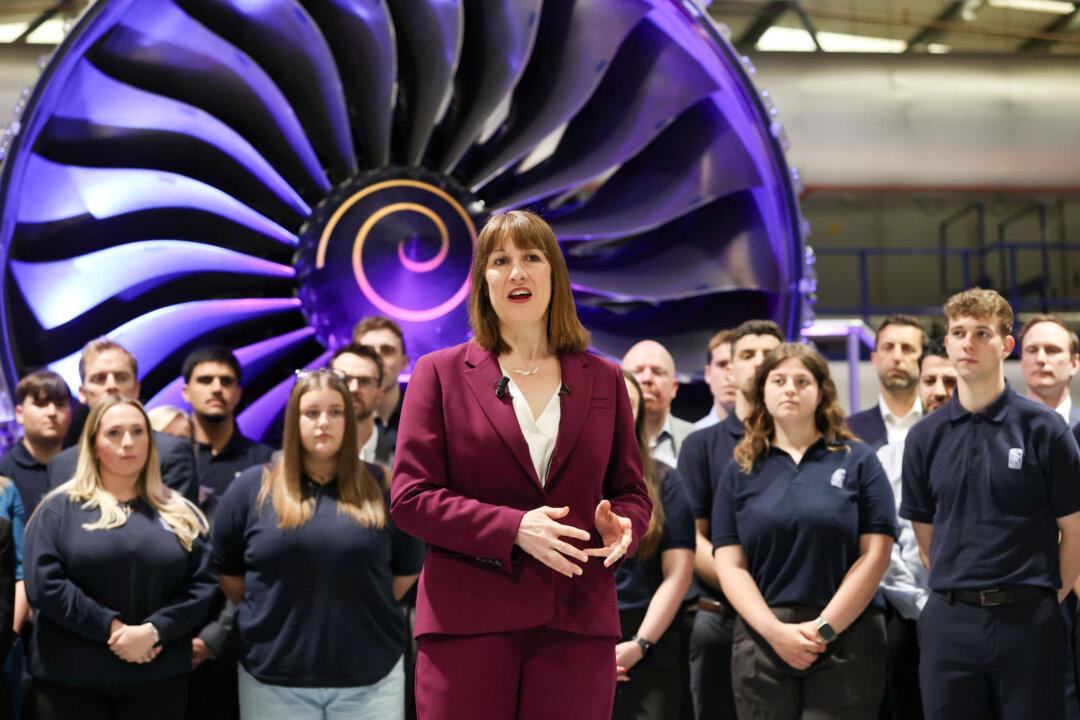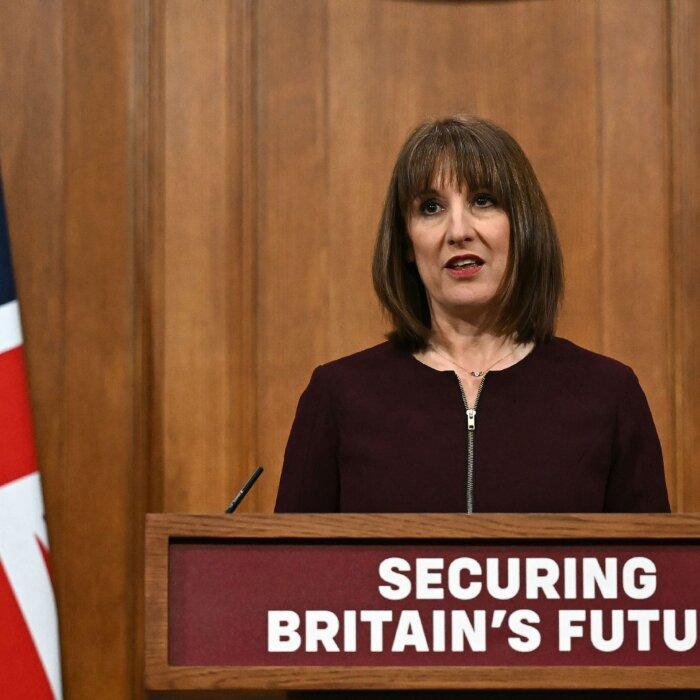The UK economy grew at the fastest rate in a year over the first quarter of 2025, in a boost to Chancellor Rachel Reeves, new official figures show.
GDP increased by 0.7 percent between January and March, the Office for National Statistics (ONS) said.
This means it came in ahead of economists’ expectations of 0.6 percent growth for the quarter.
It was also the highest GDP rate since the first quarter of 2024, when the economy jumped by 0.9 percent.
Growth was driven by the country’s dominant services sector, which was strengthening in the opening months of the year despite some businesses warning that they were grappling with rising costs.
Reeves said the figures “show the strength and potential of the UK economy.”
“Up against a backdrop of global uncertainty we are making the right choices now in the national interest,” she said.
Prime Minister Sir Keir Starmer said the figures showed he was meeting his goal of having the highest growth in the G7 group of advanced economies.
“But I know the Tory cost-of-living crisis isn’t over—we will go further and faster to deliver for working people,” Starmer said.
Reeves acknowledged that there was “more to do,” with the latest ONS figures covering the period before tax rises and U.S. President Donald Trump’s “liberation day” tariff announcements.
Company national insurance contributions increased from April, which some economists have said will force firms to cut jobs.
And the United States has imposed a 10 percent blanket tariff on most UK goods entering the world’s biggest economy, which is expected to directly impact exporters and has led to heightened uncertainty affecting businesses and households.
The latest figures show that economic growth slowed to 0.2 percent in March, from 0.5 percent in February, as activity among UK factories began to slump.
Shadow chancellor Sir Mel Stride pointed out that both the Office for Budget Responsibility and the International Monetary Fund had downgraded short-term growth forecasts on the back of tariff uncertainty.
“Labour inherited the fastest-growing economy in the G7, but their decisions have put that progress at risk,” he said, adding that national insurance hikes—which he branded as “jobs tax”—were making people worse off.
Liz McKeown, ONS director of economic statistics, said: “The economy grew strongly in the first quarter of the year, largely driven by services, though production also grew significantly, after a period of decline.
“Growth in services was broad based, with wholesale, retail, and computer programming all having a strong quarter as did car leasing and advertising.
“These were only slightly offset by falls in education, telecoms, and legal services.”
The services sector jumped by 0.7 percent over the quarter, compared with the last three months of 2024, with administrative and support service activities surging by 3.3 percent.
Retail trade increased by 1.4 percent over the quarter, while sports and recreation activities picked up by 5.8 percent in March as warmer weather swept across the UK.
Consumer-facing services rose by 0.9 percent in the first quarter, indicating relative strength among households ahead of a swathe of bills rising from April, including energy and water.
Elliott Jordan-Doak, senior UK economist for Pantheon Macroeconomics, said the first-quarter data shows “the economy holding up well heading into the trade war,” which is expected to “hurt growth in 2025 and 2026.”
“The UK’s new trade deal with the U.S. rules out the worst-case scenario for tariffs, at least for now,” he added.
“But we think the radical uncertainty unleashed by the trade war will persist, weighing on investment and consumer confidence.”






